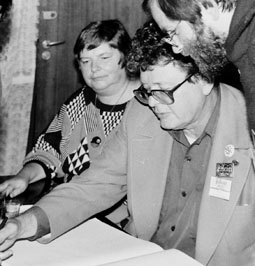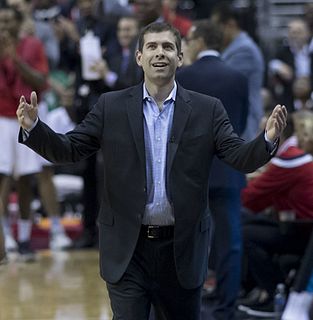A Quote by Poul Anderson
So much American science fiction is parochial - not as true now as it was years ago, but the assumption is one culture in the future, more or less like ours, and with the same ideals, the same notions of how to do things, just bigger and flashier technology. Well, you know darn well it doesn't work that way.
Related Quotes
When I was little, I guess I was just an ordinary kid. But then things changed when I was in junior high. You know, kids that become geeks become one because of something. Like, they aren't good at sports, or girls don't like them. I, too, for some reason, got into things like science fiction and, well, especially science fiction as an escape.
Sarcastic Science, she would like to know,
In her complacent ministry of fear,
How we propose to get away from here
When she has made things so we have to go
Or be wiped out. Will she be asked to show
Us how by rocket we may hope to steer
To some star off there, say, a half light-year
Through temperature of absolute zero?
Why wait for Science to supply the how
When any amateur can tell it now?
The way to go away should be the same
As fifty million years ago we came-
If anyone remembers how that was
I have a theory, but it hardly does.
When you write something you know, you're making a story that will work, whether or not there's bits taken. It's always funny to me when people say, 'Well, it's clearly autobiographical,' and I say, 'Well, how do you know my autobiography?' Certainly, there are things that are connected, but I just think it's a very interesting assumption.
Without any extraordinary effort of genius, I have discovered that nature was the same three thousand years ago as at present; that men were but men then as well as now; that modes and customs vary often, but that human nature is always the same. And I can no more suppose, that men were better, braver, or wiser, fifteen hundred or three thousand years ago, than I can suppose that the animals or vegetables were better than they are now.
I like to work with people of different cultures, different points of view. But yeah, I feel much more comfortable. That's the problem I sometimes have with going to Hollywood. I feel like they don't share the same values as I do. They aren't interested in the same things. It's not always true, but sometimes, I feel it deeply, because as an industry, they celebrate things that I'm less interested in, and it's all about the business.
I've been to Washington many times over the years for stories, and it always seems remarkably the same. More the same than the rest of the country. It's almost like they dress the same as they did 20 years ago. The same old guys are sitting outside the same dirty, dingy secret offices in the Capitol that you're not allowed to go in.
I think that prog rock is the science fiction of music. Science fiction speculates on what the future might be and look like and how we'll get there, and yet there's always a central theme of humanity, or there should be. Progressive rock has the same concept of exploration into the parts of the music world that hasn't been explored.






































